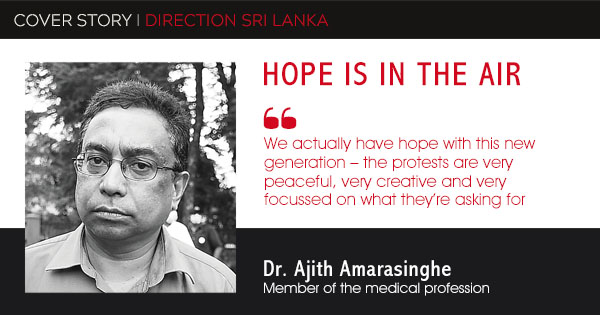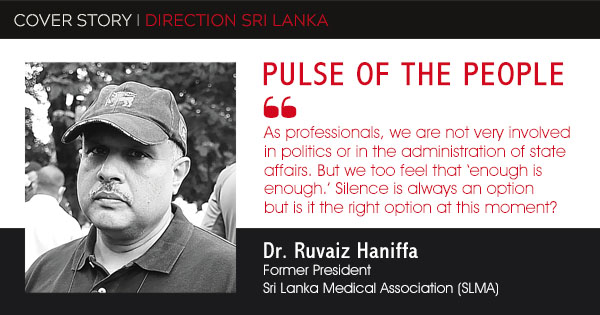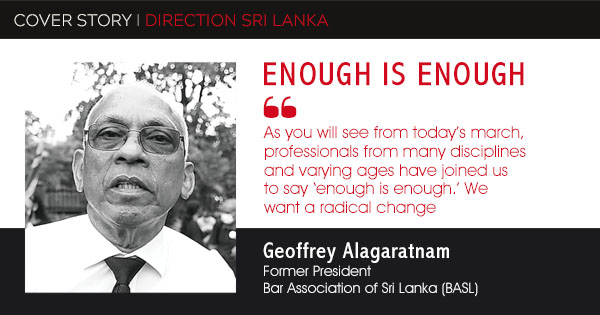The President of the Bar Association of Sri Lanka (BASL) Saliya Pieris, airing his views on the recent people’s protests, said: “Citizens have a right to express themselves; it is a right that must be respected and understood. Currently, many in Sri Lanka are demonstrating their anger and anguish by protesting; and on the part of the authorities, there has to be empathy and understanding of their suffering.”
“There should be respect for public opinion even if it is distasteful to authorities; the fundamental rights of citizens to peacefully demonstrate should be accepted. However, it is not right for protesters to harm property of the state or individuals – BASL has released a statement on this,” he elaborated.
Discussing the possibility of meeting the protester’s present demands, he said: “I think any solution has to be achieved through constitutional provisions. Our constitution sets out how the government is established, ministers are appointed and Sri Lanka is governed. It is important to adhere to basic rules and principles of the establishment, and work within this framework.”
Pieris added that “compromises will be needed – those in positions of authority need to understand the consequences of not changing when people want a difference; it is of paramount importance for those governing to respond to the demands of the population.”
“People’s supremacy is far reaching – the sovereignty of citizens is firmly established in Sri Lanka’s constitution. However, we must understand that power must be exercised in an intelligent manner, rationally and not rashly,” he articulated.
Speaking about the 20th and 19th amendments to the constitution, he remarked: “At the time the 19th amendment was enacted, BASL was supportive of it. Despite some weaknesses, it controlled the powers of the executive.”
“We pointed out the importance of maintaining independence of human rights and bribery commissions, and judicial appointments, with the 20th amendment to the constitution. BASL reiterated that in appointing persons to these offices, there must be a process where the president does not have absolute authority, his appointments are not arbitrary, and the constitutional council should review the president’s nomination,” he emphasised.
Pieris continued: “I think in any system of governance, too much power given to one position of the state could easily lead to abuse – there must be checks and balances. Clearly, the executive presidency wields too much authority, and it is imperative that any office is accountable to parliament.”
Airing his thoughts on the situation in Sri Lanka at the time, he felt that “we need to understand the rights of everyone who is protesting. The nation is at the crossroads and the path we choose will impact this country for generations to come. I criticise some sectors that have remained silent and haven’t been vocal enough. It is particularly important that we remain vigilant and exercise our rights.”
“The BASL issued a statement on the current economic crisis in January. We set out in detail our perceptions of issues facing the economy, and what ought to be done. I’m sorry to say that not many sectors have been vocal; and it is only now that some are expressing their views when they should have been proactive months ago,” he stated with disappointment.
Finally, referring to the magnanimous gesture on the part of the legal community to protect the protesters, Pieris mentioned: “It was spontaneous. When the legal community realised that some protesters had been arrested, members of the bar offered to help and visited arrestees at the police station to provide them any legal assistance required.”
“The bar is always committed to safeguarding the interests of citizens. The legal profession will always stand up for the rule of law, for the independence of the judiciary and to safeguard fundamental rights of people in this country,” Pieris assured.





